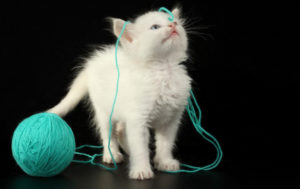 When adopting a pet, one must understand that it’s a lifetime vow to an additional family member who entirely depends on them for their well-being. Put, proper pet care is the foundation of responsible pet ownership.
When adopting a pet, one must understand that it’s a lifetime vow to an additional family member who entirely depends on them for their well-being. Put, proper pet care is the foundation of responsible pet ownership.
Considering the love and happiness they bring to one’s life, caring for a furry friend shouldn’t be difficult.
What’s Required to Take Good Care of a Pet?
Having a plan is necessary as caring for a furry family member is a full-time job – keep in mind a pet owner can’t always be at home. Learning everything one can about a pet’s specific needs is a good start. Note that these needs will vary depending on the species.
One important thing that must be addressed when caring for a pet is regular visits to a veterinarian. As such, you should find the best mobile vet near you when your furry friend falls ill.
Regular Visits to Your Local Vet
A furry family member, be it a cat or a dog, needs a health check bi-annually as they’ve got a much shorter lifespan than humans. Pets could age several years within six months compared to humans. A young pet may require a more systematic visit schedule to the vet than their adult counterparts as they need to be current on their vaccine shots.
Consider Microchipping Your Pet
Irrespective of how responsible a pet owner is, it’s always essential to consider microchipping their pet/pets. This is a quick process that a local vet can do – it ranges from GPS tracking devices to implants under the pet’s skin and ID collar tags. These devices help find a pet in case they go wandering off. Additionally, when scanned, they show the identity of a pet.
Provide Sufficient Opportunities for Pet Exercise/Socializing
Ample exercise is also crucial in proper pet care. It’s essential in a pet’s physical and mental health. By being mentally and physically fit, pets can participate more in the activities they love. Pets are naturally social, so they need to spend quality time with their owner. This will help the owner understand their needs and identify early signs of ailments. Lastly, spending time with your pet goes a long way toward eliminating unwanted behavioral patterns.


